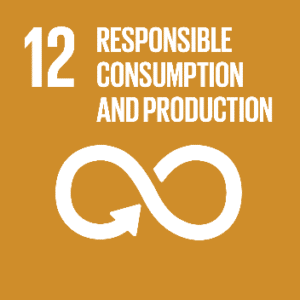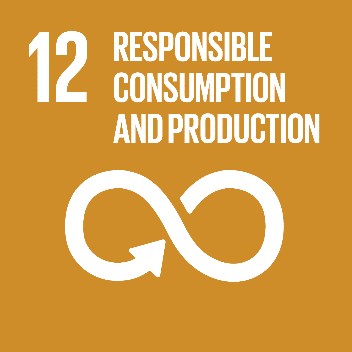WOIMA aligning with UN Sustainable Development Goals (SDG)
Goal 12: Ensure sustainable consumption and production patterns

Sustainable consumption and production is about promoting resource and energy efficiency, sustainable infrastructure, and providing access to basic services, green and decent jobs and a better quality of life for all. Its implementation helps to achieve overall development plans, reduce future economic, environmental and social costs, strengthen economic competitiveness and reduce poverty.

Sustainable consumption and production aims at “doing more and better with less,” increasing net welfare gains from economic activities by reducing resource use, degradation and pollution along the whole lifecycle, while increasing quality of life. It involves different stakeholders, including business, consumers, policy makers, researchers, scientists, retailers, media, and development cooperation agencies, among others.
It also requires a systemic approach and cooperation among actors operating in the supply chain, from producer to final consumer. It involves engaging consumers through awareness-raising and education on sustainable consumption and lifestyles, providing consumers with adequate information through standards and labels and engaging in sustainable public procurement, among others.
- Each year, an estimated one third of all food produced – equivalent to 1.3 billion tonnes worth around $1 trillion – ends up rotting or spoiling due to poor transportation and harvesting practices while almost 1 billion people go undernourished and another 1 billion hungry
- Less than 3% of the world’s water is fresh (drinkable), of which 2.5% is frozen in the Antarctica, Arctic and glaciers. Humanity must therefore rely on 0.5% for all fresh water needs
- We are polluting water faster than nature can recycle and purify water in rivers and lakes
- More than 1 billion people still do not have access to fresh water
- Households consume 29% of global energy and contribute to 21% of resultant CO2 emissions
- Only one-fifth of the world’s final energy consumption in 2013 was from renewables
- Land degradation, declining soil fertility, unsustainable water use, overfishing and marine environment degradation are all lessening the ability of the natural resource base to supply food
- The food sector accounts for around 30% of the world’s total energy consumption and accounts for around 22% of total Greenhouse Gas emissions.
WOIMA is committed to helping the developing countries to ensure sustainable production and consumption patterns. The tool is our modular wasteWOIMA® waste-to-energy power plant that will
- incinerate cleanly the waste of 100,000 – 500,000 people
- generate affordable energy for 50,000 – 100,000 people
- employ 100 – 200 people
- generate hundreds of jobs and training opportunities up- and downstream
- save 100,000 tons of CO2 equivalent emissions per year
- be up and running within 12 months
UN has set the following targets by 2030, supported by WOIMA and our modular wasteWOIMA® waste-to-energy power plant
- Achieve the sustainable management and efficient use of natural resources
- Halve per capita global food waste at the retail and consumer levels and reduce food losses along production and supply chains, including post-harvest losses
- Achieve the environmentally sound management of chemicals and all wastes throughout their life cycle and significantly reduce their release to air, water and soil
- Substantially reduce waste generation through prevention, reduction, recycling and reuse
- Encourage companies, especially large and transnational companies, to adopt sustainable practices and to integrate sustainability information into their reporting cycle
- Ensure that people everywhere have the relevant information and awareness for sustainable development and lifestyles in harmony with nature
- Support developing countries to strengthen their scientific and technological capacity to move towards more sustainable patterns of consumption and production
- Develop and implement tools to monitor sustainable development impacts for sustainable tourism that creates jobs and promotes local culture and products
- Rationalize inefficient fossil-fuel subsidies that encourage wasteful consumption
Read more about the UN SDGs at
https://www.un.org/sustainabledevelopment/sustainable-development-goals/
Contact WOIMA to learn more on how we can change the world together.
WOIMA Social Media accounts





